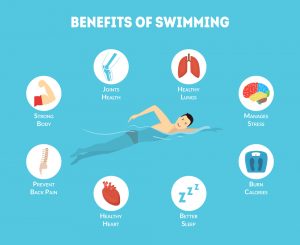Workplace stress is a large issue in the United States. Individuals burn out or some even become aggressive. The leading causes for work place stress include not enough time, inappropriate resources, personality clashes, and micro management. Many times, workers and employees take their frustration home and spread the anxiety and stress to others. It is hence important to reduce stress at work not only for the health of employees but also for the productivity and morale of the office.

Many individuals turn to meditation. Individuals in the office or at work find ways to incorporate stress relief techniques or quick meditation to help them through the day. In fact, some companies spend thousands on Meditation itself. Meditation Instructors are employed to teach employees how to utilize mediation at work as way to reduce stress and increase productivity.
The article, “5 effective meditation techniques to practice at work” by Akanksha Agnihotri takes a closer look at types of Meditation one can employ while at work to help with stress and productivity. The author lists a variety of techniques such as deep breathing to visualization. A special walking meditation is also included. Through these types of meditation the article hopes to guide an individual to a way to utilize meditation that fits one best. The article states,
“Increasing work demands and workplace stress levels can take a toll on your mental health. Employees may be unable to perform to their full potential and realise their life goals if they are experiencing such negative effects on their bodies and brains. Practising meditation at the workplace has many proven benefits like reduced stress and improved focus. Increased creativity, productivity and improved relationships with colleagues are some of the great results of meditation one can attain at work.”
“5 effective meditation techniques to practice at work”. Akanksha Agnihotri. November 15th, 2022. Hindustan Times.
To read the entire article, please click here
Commentary
Meditation can be a very useful tool in helping employees reduce stress and be more successful at work. Stress itself is the biggest obstacle to productivity.
Stress at work is a phenomenon that has been well-documented in the literature as a potential occupational hazard. It is defined as an individual’s subjective experience of distress due to a perceived inability to cope with demands placed on them in the workplace context. Stressors can be physical, psychological, or organizational in nature, and may take the form of workload demands or challenging interpersonal dynamics.
Workplace stressors can be defined as the physical and psychological demands placed on an individual while they work, which can have a negative impact on their overall wellbeing. This can include factors such as workloads, working conditions, interpersonal relationships, workplace culture and organisational change. These stressors are often sources of chronic stress for workers, causing detrimental long-term effects both to their mental and physical health.
Meditation at Work

Meditation at work is an increasingly popular practice in modern workplaces, as it provides numerous benefits to employees. It can be utilized as a form of stress management, allowing participants to relax and clear their minds amidst a hectic day. In doing so, it can create an environment of greater focus and productivity, as well as foster healthy habits for self-care that are conducive to the overall well-being of the organization.
Meditation at work is a practice that has been gaining traction among productivity-focused professionals. It involves the intentional control of attention through various forms of contemplative practice, such as mindfulness or self-reflection. There are different types of meditation that can be employed to maximize focus and clarity in the professional environment. Transcendental meditation is a type of meditation designed to induce a state of restful awareness and an inner stillness by silently repeating a mantra.
One of the most popular forms of workplace meditation is Mindfulness Meditation, which encourages practitioners to focus on the present moment and observe their thoughts, feelings, and physical sensations. This type of meditation can be used to reduce stress and anxiety caused by work-related pressures, as well as increase attention span and productivity. Additionally, Transcendental Meditation (TM) is an effective practice for reducing stress experienced in the workplace.
In addition, one can employ Walking meditation. Walking meditation is a form of mindful practice in which one actively engages the cognitive faculties in order to experience the physical reality of movement. It involves a conscious awareness of each step taken, as well as the environmental factors that affect it such as temperature, air flow, and other sensory inputs. By focusing on these elements, practitioners are able to cultivate enhanced levels of attention, clarity and insight while they walk.
Stress Reduction at Work
Stress reduction tools at work represent a pro-active approach to the mitigation of deleterious psychological states with regard to occupational contexts. Such tools may take the form of various coping strategies such as cognitive reframing, relaxation techniques, and mindfulness practice which can be employed when faced with stressful situations. This intervention is designed to promote psychological resilience and emotional regulation, as well as provide a buffer against job-related stressors.
From stress balls to relaxing music, individuals can find ways to reduce the noise and tension at work. It is imperative to find a balance to ensure productivity and success in the office or work place.
Meditation Instructors can serve a positive role for companies seeking to train employees in the secrets of meditation and how to employ it for their overall mental health. In addition, meditation can reduce stress and help company productivity sore by making minds more focused and individuals more calm and able to coordinate and work together. Meditation instructors and corporate entities are two divergent forces that can benefit from the practice of mindfulness. The former offer a service that has been proven to help individuals cope with stress, anxiety, depression, and other psychological and emotional issues. On the other hand, corporations have recently become increasingly interested in incorporating meditation into their business operations as a way of enhancing employee productivity and performance.
Conclusion
In conclusion, the benefits of workplace meditation are clear. It can help to reduce stress and anxiety, improve concentration, and increase productivity. Furthermore, it can also foster a sense of community among employees, as they come together in the shared practice of mindfulness. Regularly engaging in workplace meditation can lead to better physical and mental health, increased happiness and satisfaction with work, and improved collaboration between colleagues. It is an invaluable tool that should be embraced by more organizations seeking to create a healthier, more effective working environment.
Please also review AIHCP’s Meditation Instructor Certification and Stress Management Certification programs and see if they meet your academic and professional goals. The programs are online and independent study and open to qualified professionals seeking a four year certification.
Additional Resources
“Six Proven Benefits Of Meditation In The Workplace”. Laura Sage. August 3rd, 2020. Forbes. Access here
“Coping with stress: Workplace tips”. Mayo Clinic Staff. June 16th, 2021. Mayo Clinic. Access here
“9 Benefits of Meditation For The Workplace”. Paul Harrison. The Daily Meditation. Access here
“16 Causes of Workplace Stress & How to Prevent Its Effects”. Jeremy Sutton, PhD. September 7th, 2021. PositivePsychology.Org. Access here







